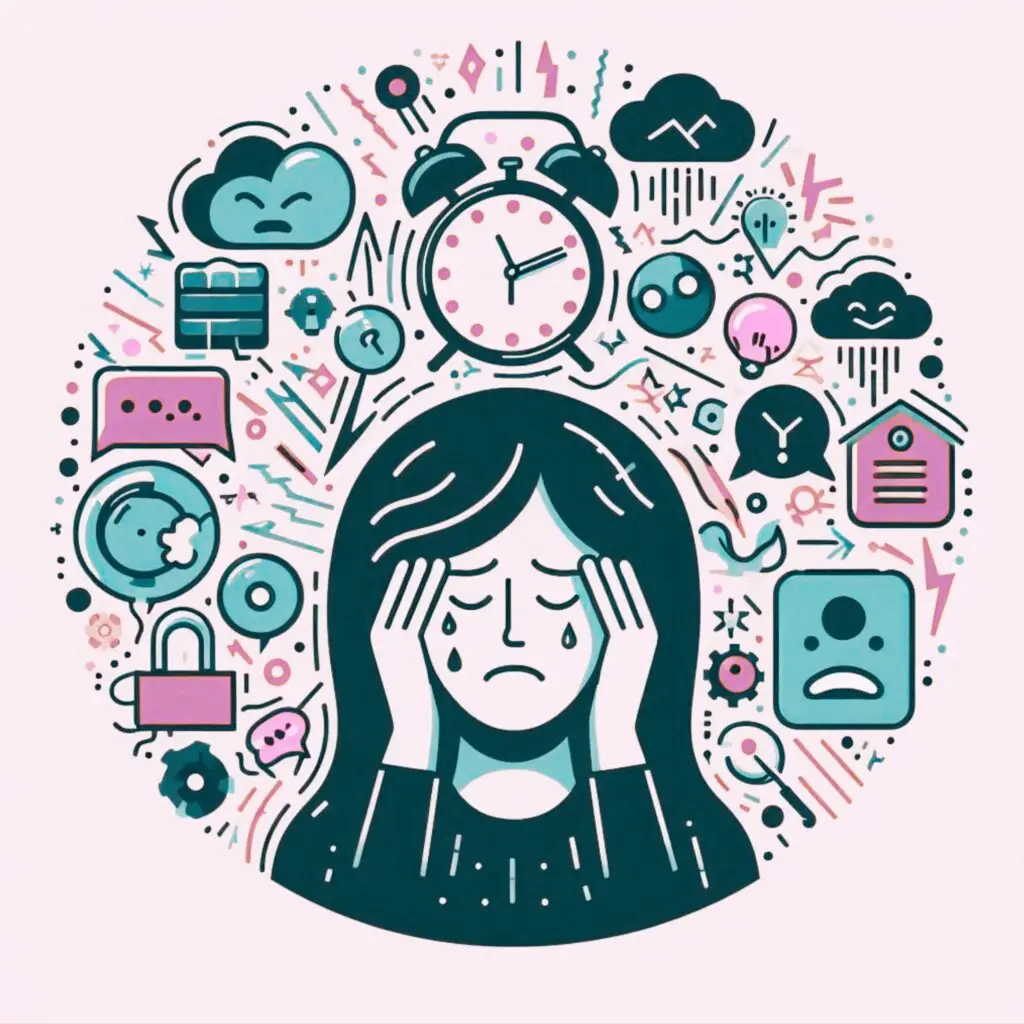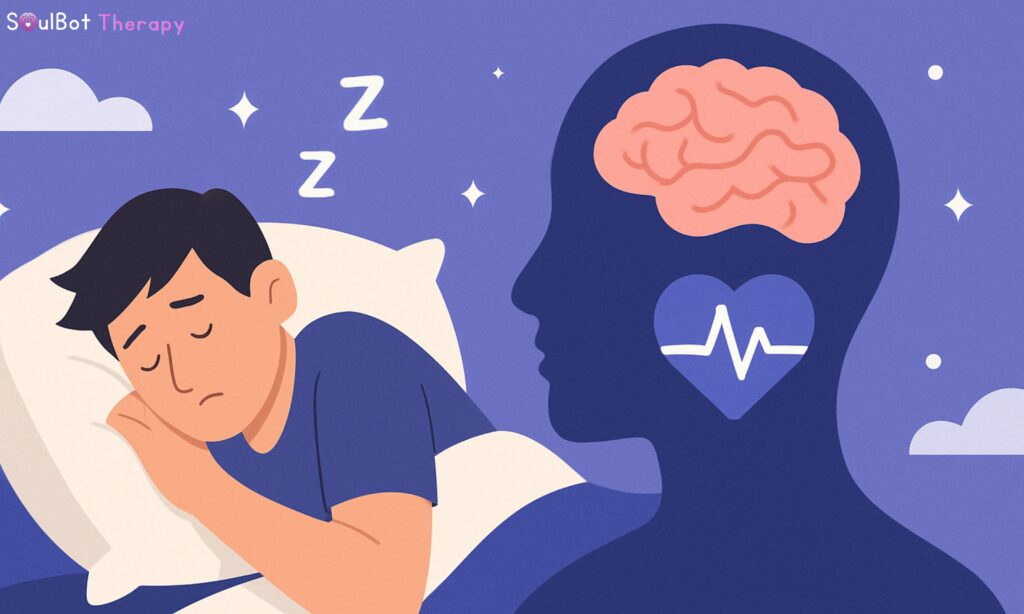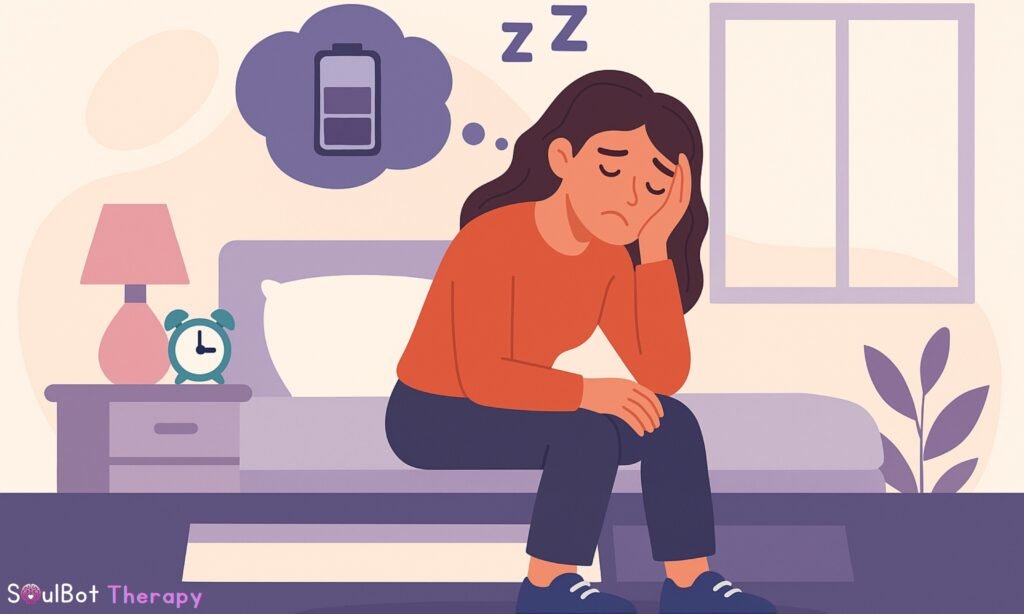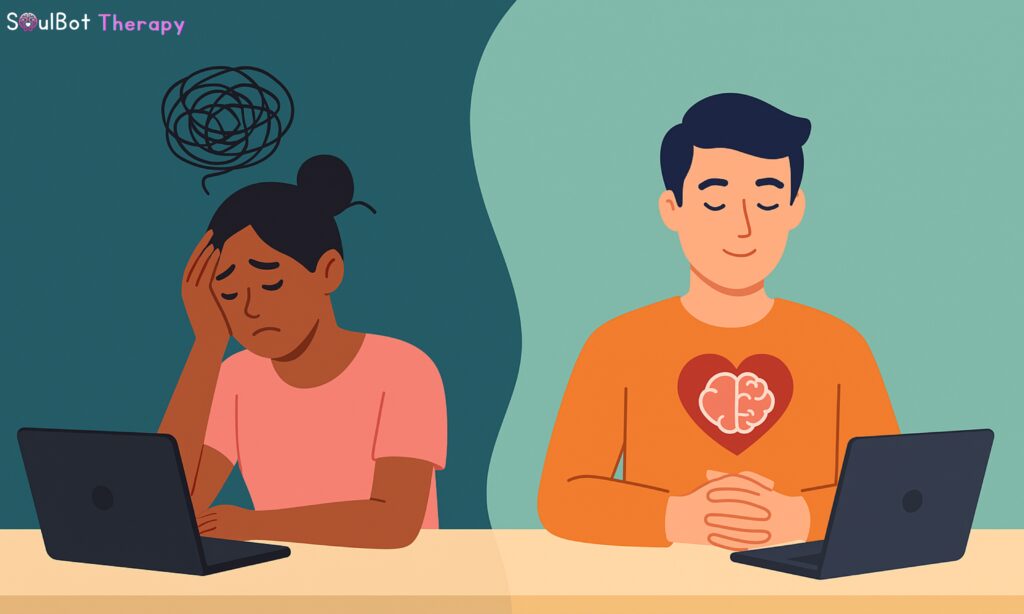Mental illness is more than just a medical condition—it affects how we think, feel, and interact with others. But have you ever wondered how mental health impacts your daily life? From work to relationships and even simple tasks, it plays a huge role in everything we do. Let’s explore how psychological illness shapes our daily lives and what we can do to keep our minds healthy.
How does mental illness affect your life every day?
When your mental health is stable, you feel more in control, confident, and able to handle challenges. But when you’re struggling with mental sickness, even small tasks can feel overwhelming. Here’s how psychological health impacts different aspects of life:
Productivity and Focus
Struggling with a mental condition can make it hard to focus at work or school. You may find yourself forgetting things, struggling to complete tasks, or feeling exhausted even before your day starts. Learn more about how mental health affects productivity.
Relationships and Social Life
Good mental health helps us maintain healthy relationships. But when you’re feeling anxious, depressed, or stressed due to mental illness, you may avoid social interactions, become irritable, or have trouble expressing yourself. This can put a strain on relationships with family, friends, and coworkers.
Physical Health and Energy Levels
Your mind and body are connected. Mental health issues like stress and anxiety can usher to physical symptoms such as headaches, fatigue, and sleep problems.
💡Fact: According to Harvard Medical School, psychological illness affects physical health, increasing the risk of high blood pressure, heart disease, and weakened immune function.
Decision-Making and Everyday Tasks
The impact of mental conditions on decision-making and daily life can be significant. Even simple things like choosing what to eat or whether to go out can feel overwhelming. This can lead to procrastination and difficulty managing daily responsibilities.
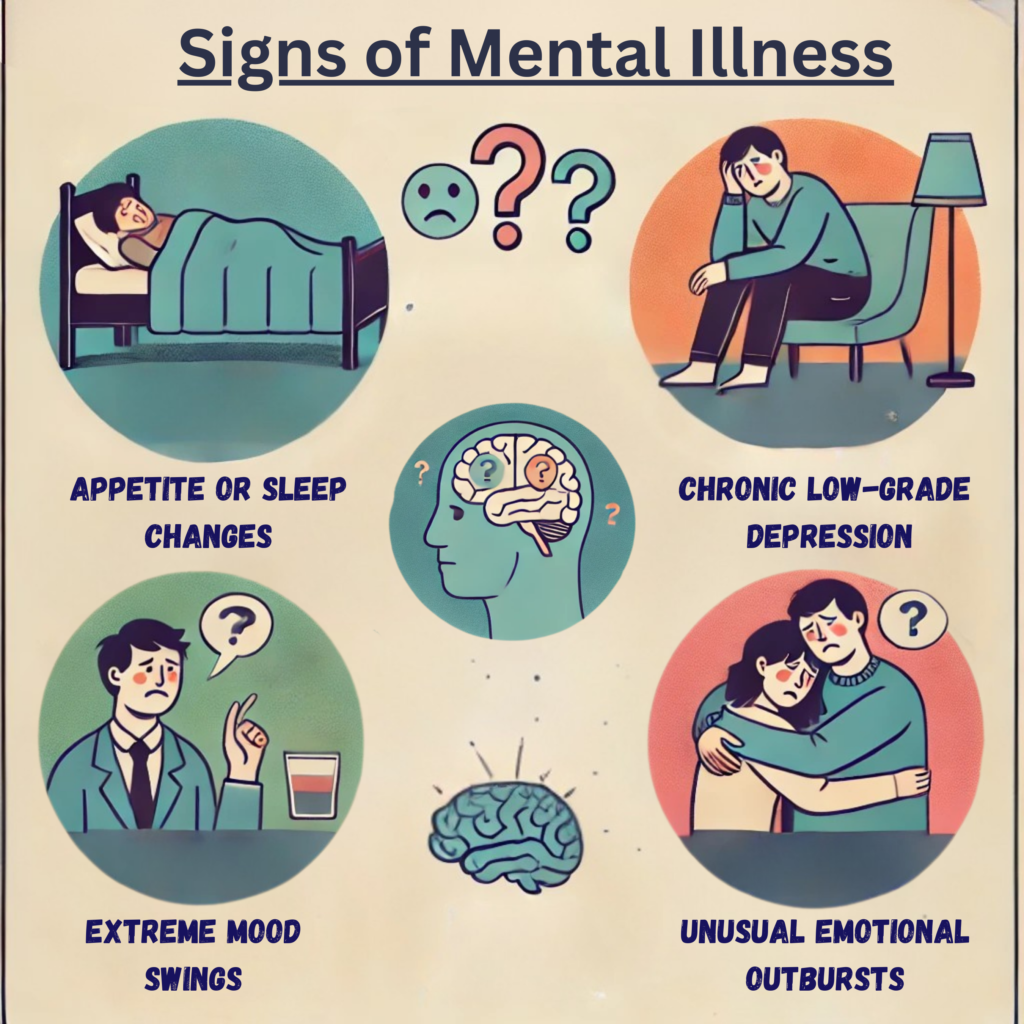
What are the signs of mental illness that should not be ignored?
It’s important to recognize the signs of mental illness early. Here are some red flags:
- Feeling sad or anxious most of the time
- Trouble sleeping or sleeping too much
- Lack of interest in things you once enjoyed
- Mood swings or irritability
- Feeling exhausted or lacking energy
- Difficulty concentrating or making decisions
- Withdrawing from friends and family
💡 Fact: Research from the National Institute of Mental Health (NIMH) reveals that 1 in 5 adults experience mental illness each year, affecting their daily life and productivity.
Take control of your well-being. Chat with SoulBot for expert-backed mental health advice—anytime, anywhere.
What are the causes of mental illness?
- Genetics – If mental issues runs in your family, you might be at higher risk.
- Stress and Trauma – Major life changes, abuse, or ongoing stress can affect mental health.
- Brain Chemistry – An imbalance in the brain can contribute to depression and anxiety.
- Lifestyle Choices – Lack of sleep, poor diet, and substance use can impact mental health.
- Chronic Illnesses – Living with long-term health issues can lead to emotional distress.
💡 Fact: The World Health Organization (WHO) states that early intervention in mental illness significantly improves recovery rates and long-term psychological well-being.
Your mental health matters. Let SoulBot guide you through stress, anxiety, and self-care strategies.
Why is Mental Health Important?
- Affects daily life – Mental issues influences thoughts, emotions, and actions, shaping how we handle stress and relationships.
- Impacts physical health – Mental sickness is linked to heart disease, weakened immunity, and sleep problems.
- Boosts productivity – Good mental health improves focus, motivation, and decision-making, while mental health issues can hinder performance.
- Strengthens relationships – Understanding how mental health affects people fosters better communication and emotional connections.
- Prevention is key – Recognizing signs of mental illness early helps manage stress and prevent severe conditions.
- Reduces stigma – Promoting awareness about the impact of mental health encourages open conversations and better support systems.
How do we manage mental Illness and improve mental health?
If you’re struggling with mental illness, there are steps you can take to feel better:
- Talk to someone – Reach out to a friend, family member, or professional.
- Practice mindfulness – Meditation and deep breathing can help reduce stress.
- Stay active – Exercise releases feel-good chemicals in your brain.
- Eat healthy – A balanced diet can boost your mood and energy levels.
- Get enough sleep – Poor sleep can make mental health worse.
- Set small goals – Break tasks into manageable steps to avoid feeling overwhelmed.
💡 Fact: Studies by Mental Health America (MHA) highlight that exercise and a balanced diet can effectively reduce symptoms of anxiety and depression.
Final Thoughts
Mental illness affects all areas of life, from emotions to relationships and daily tasks. Recognizing mental health issues and taking proactive steps can lead to a better quality of life. If you or someone you know is struggling with mental issues, seeking help is a sign of strength. By prioritizing mental well-being, you can take control and lead a fulfilling life.
Frequently Asked Questions
How does mental illness affect physical health?
Mental illness can impact sleep, digestion, heart health, and overall energy levels.
Can mental illness be prevented?
While not all mental illnesses can be prevented, managing stress and taking care of your mental well-being can lower your risk.
How does mental illness affect relationships?
Mental illness can make communication difficult, leading to conflicts or social withdrawal.
What is the difference between mental health and mental illness?
Mental health is about overall well-being, while mental illness refers to specific conditions like depression or anxiety.
How can I support someone struggling with mental illness?
Listen without judgment, offer help, and encourage them to seek professional support.

